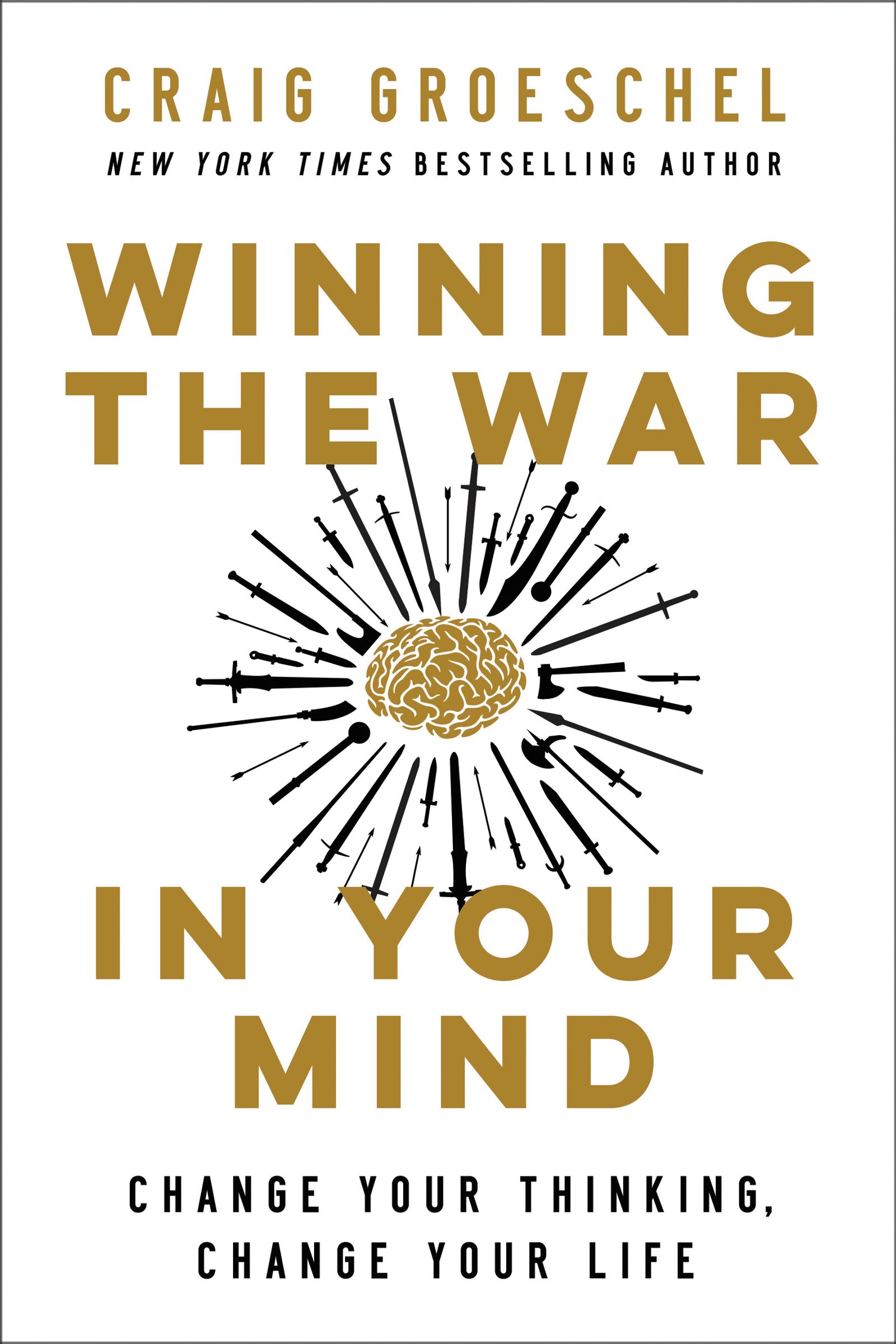What do you think?
Rate this book


256 pages, Hardcover
First published February 16, 2021
"Our lives are always moving in the direction of our strongest thoughts. What we think shapes who we are."I've read several books by Craig Groeschel in the past and each one left a lasting impression on me, especially Hope in the Dark . I always enjoyed his writing style because it's easy to read yet also thought-provoking at the same time. I also admire how he's not afraid to be vulnerable in the books that he wrote and shared his personal struggles that readers can relate to. So when it was announced that he will be publishing a new book, I immediately put it on my to-read list. I was also intrigued by the title of this book, because there are times when it's really difficult to change our way of thinking or to break a bad habit that has become a part of our lives for a long time.
"You cannot change what you do not confront. If you ignore the battle, you lose the battle."I certainly learned a lot from this book and I'll be sharing a few of my favorites so that you can have an idea what this book talks about. The first one is about cognitive bias, which is a term that refers to a standardized, consistent pattern of deviating from reality in how we see and process things. It creates a subjective reality that affects how we respond and behave. Craig Groeschel gives some great examples that makes it easier to understand. One of the example is when a boss gives the same feedback in the same way to two employees. One receives it as fair, constructive criticism; while the other person is totally offended. The difference between these two is cognitive bias. We are encouraged to analyze and identify the root problem that causes our cognitive bias. It is crucial to do so because a lie believed as truth will affect our lives as if it were true.
"An old quote states, "Watch your thoughts, they become your words; watch your words, they become your actions; watch your actions, they become your habits; watch your habits, they become your character; watch your character, it becomes your destiny." The journey to your destiny starts with your thoughts. The right thoughts lead to the right life. Automatically."No matter how hard we try, we cannot control what's happened in the past or what will happen in the future, but what we can control is how we perceive it. Social psychologists call it cognitive reframing, which will be helpful to encounter cognitive bias. One of my favorite chapters in this book is titled 'What God Didn't Do', which guides us to reframe our past. As Craig Groeschel states, this is the shortest chapter in the book but it might be one of the most powerful—which I completely agree. I relate so much to the part that says 'I am so thankful for what God didn't do in my life'. When I was going through it in the past, it was definitely not pleasant. Now I am able to look back and see God's divine protection over my life and I have to agree that His plans are always better than mine. Sometimes we need to thank God for what he didn't do. Developing that discipline helps us reframe our past and see it from God's perspective instead of ours.
"If you look for what's bad, you will find the bad. If you look for what's negative, you will find plenty to be negative about. If you look for things to be critical of, there is always going to be something to criticize.
On the other hand, if you look for God's goodness, you will see it. You'll start seeing his fingerprints and occasionally feel like he's winking at you. As you pay attention to how God is working, you will also find yourself seeing the good in people. This practice will change your relationships. Your attitude will be transformed, and the right attitude always precedes the right actions."